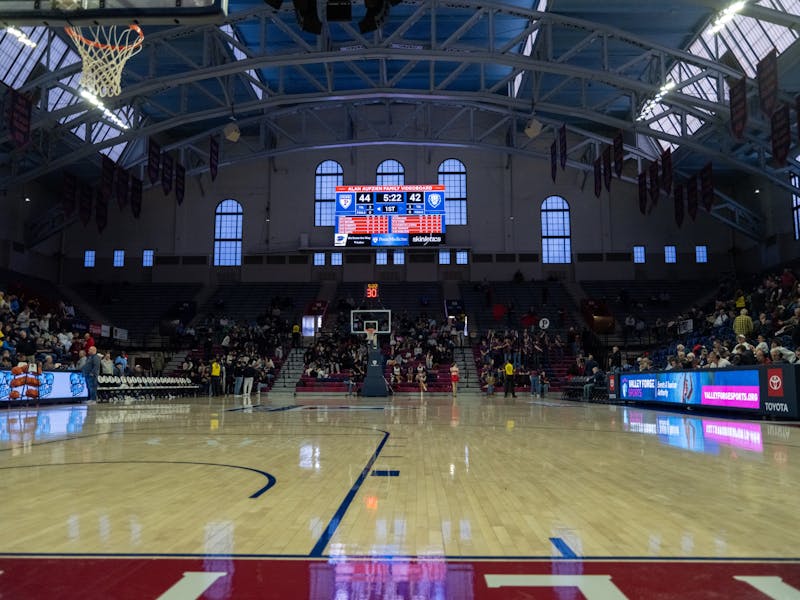The Stop Online Privacy Act put the spotlight on internet regulation earlier this year, but the laws governing the way we use the web have yet to be decided.
While Congress made several efforts to reform internet use this year — the Stop Online Piracy Act, Protect IP Act, Online Protection and Enforcement of Digital Trade Act and the Cyber Intelligence Sharing and Protection Act — the bills have yet to pass, opening up the door to further debates over internet regulation.
SOPA, introduced to the House of Representatives on Oct. 26, aims to prevent copyright infringement on foreign websites. Proposed by Rep. Lamar Smith (R-Texas), SOPA would permit the federal government and copyright holders to get court orders against any “U.S.-directed foreign Internet site” engaging in piracy. The bill is aimed at sites that provide access to things such as illegal media downloads, as well as sites which link to such providers.
Recent Wharton and Engineering graduate Naveen Kasthuri said attempts to punish copyright infringement outside of the United States are not likely to be successful. Referencing the popular Swedish torrent site, Kasthuri said sites like The Pirate Bay exemplify the difficulty of imposing piracy laws. “They took down a URL and Pirate Bay immediately uploaded another URL. In order for [these types of sites] to be entirely blocked, the whole internet will have to be blocked.”
SOPA opponents specifically disliked provisions requiring internet service providers to block the domain names of infringing sites and preventing search engines from listing them. In response, lawmakers proposed the less stringent OPEN.
Introduced to the Senate by Sen. Ron Wyden (D-Ore.) on Dec. 17, and to the House by Rep. Darrell Issa (R-Calif.) on Jan. 18, OPEN would not require the sites to be blocked, nor would search engines remove the listings. However, it would allow copyright holders to file complaints about foreign websites with the International Trade Commission. The ITC would then investigate the claims and subsequently determine if U.S. payment providers and advertisers should halt their funding.
Rising College junior Hugh Hamilton said OPEN would do a better job of protecting civil rights and liberties. A former IT adviser at Ware College House, Hamilton also noted the importance of protecting innocent parties. “It’s important to make sure they don’t punish providers of information, rather, they punish strictly people who are trying to steal intellectual property.”
Kevin Werbach, professor of legal studies and business ethics, attributes SOPA’s failure to pass to its potential use as a “weapon to threaten sites that were taking part in legitimate activities.” Werbach said the prevalence of websites effectively combatting infringement, such as YouTube, is evidence that such bills are unnecessary.
Like SOPA, OPEN has not been passed. CISPA, however, is making more progress than either of those bills. Last Nov. 30, the bill was introduced to the House by Rep. Mike J. Rogers (R-Mich.), and on April 26, it passed. The bill is now waiting passage in the Senate.
CISPA would allow private companies like Google and Facebook to share user data with the government if the companies consider content a cyber threat, while also giving companies the option to make user information anonymous. Opponents contend the broad possibilities of what could be considered a cyber threat pose a threat to the privacy of internet users.
According to Werbach, increased monitoring of the internet is unnecessary. “Current U.S. law goes far enough [regulating] innovation and creativity in the business of intellectual property. I don’t think we need to do anything to make it go further.”
Related
Despite public support for free file-sharing, Megaupload shuts down
Wikipedia, Wordpress shut down to oppose censorship
Alice Lee | Save the internet, #StopSOPA
Editorial | Beyond the blackout
The Daily Pennsylvanian is an independent, student-run newspaper. Please consider making a donation to support the coverage that shapes the University. Your generosity ensures a future of strong journalism at Penn.
DonatePlease note All comments are eligible for publication in The Daily Pennsylvanian.








